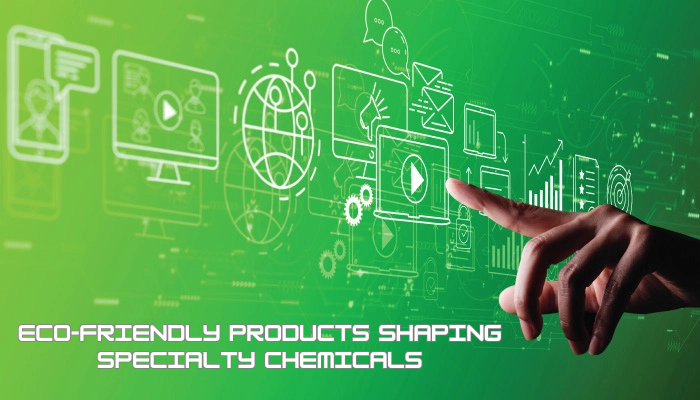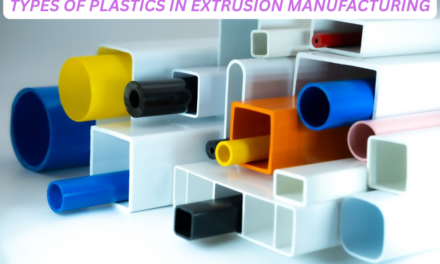Consumer preference for eco-friendly products is profoundly reshaping the specialty chemicals industry, driving innovation, sustainability, and regulatory alignment across sectors. As consumers increasingly prioritize environmentally responsible products, specialty chemical manufacturers are responding by developing greener solutions and adopting sustainable practices. Here’s how these preferences are influencing the industry:
1. Shift Toward Green and Sustainable Ingredients
- Bio-Based Chemicals:
- Increased demand for bio-based specialty chemicals derived from renewable sources like plants, algae, or waste materials.
- Examples:
- Bio-based surfactants in personal care and cleaning products.
- Polylactic acid (PLA) in packaging and textiles.
- Recycled and Upcycled Materials:
- Use of recycled feedstocks and byproducts in specialty chemical production.
- Example:
- Recycled polymers in coatings and adhesives.
2. Growth of Low-VOC and Non-Toxic Products
- Volatile Organic Compound (VOC) Reduction:
- Consumer focus on indoor air quality is driving the development of low-VOC or VOC-free paints, coatings, and adhesives.
- Example:
- Waterborne coatings and solvent-free adhesives.
- Non-Toxic Alternatives:
- Elimination of hazardous substances in favor of safer, non-toxic chemicals.
- Example:
- Paraben-free preservatives in cosmetics.
3. Rise of Biodegradable and Compostable Solutions
- Eco-Friendly Packaging:
- Specialty chemicals are enabling the production of biodegradable plastics and coatings for packaging.
- Example:
- Compostable films and biopolymers for food packaging.
- Biodegradable Cleaning Agents:
- Green surfactants and detergents that break down naturally in the environment.
4. Development of Sustainable Processes
- Green Chemistry:
- Adoption of green chemistry principles to minimize waste, energy use, and environmental impact during production.
- Example:
- Use of catalysts for energy-efficient chemical synthesis.
- Renewable Energy Integration:
- Specialty chemical plants increasingly utilize renewable energy sources, reducing their carbon footprint.
5. Focus on Circular Economy
- Recyclable and Reusable Products:
- Specialty chemicals enable the design of materials that are easier to recycle or reuse.
- Example:
- Recyclable adhesives for electronics and modular furniture.
- Chemical Recycling:
- Advanced recycling processes use specialty chemicals to break down plastics into their monomers for reuse.
6. Advancements in Natural and Organic Personal Care
- Plant-Derived Ingredients:
- Specialty chemicals from natural sources are replacing synthetic ingredients in cosmetics and personal care.
- Examples:
- Squalane from sugarcane.
- Plant-based emollients and surfactants.
- Microbiome-Friendly Formulations:
- Chemicals designed to preserve and enhance the skin’s natural microbiome, addressing eco-conscious skincare trends.
7. Eco-Friendly Coatings and Construction Materials
- Sustainable Paints and Varnishes:
- Low-VOC and bio-based coatings meet the demand for sustainable construction and decoration.
- Green Insulation Materials:
- Specialty chemicals support the production of energy-efficient, eco-friendly insulation materials.
8. Innovation in Food and Agriculture
- Sustainable Agrochemicals:
- Specialty chemicals are transforming fertilizers, pesticides, and herbicides into more eco-friendly formulations.
- Example:
- Controlled-release fertilizers and biodegradable pesticide coatings.
- Food Preservation:
- Natural preservatives and antimicrobial agents align with consumer demand for clean-label products.
9. Transparency and Traceability
- Eco-Certifications:
- Products with certifications like USDA Organic, EU Ecolabel, and Cradle to Cradle Certified are in high demand.
- Supply Chain Traceability:
- Consumers expect transparency about sourcing, production, and environmental impact, encouraging chemical manufacturers to adopt traceable supply chains.
10. Smart and Responsive Materials
- Functional Eco-Friendly Materials:
- Specialty chemicals enable innovative materials that respond to environmental conditions while being eco-friendly.
- Examples:
- Self-cleaning coatings using nano-enabled specialty chemicals.
- Phase-change materials for energy-efficient thermal management.
11. Challenges and Opportunities
- Performance vs. Sustainability:
- Balancing eco-friendliness with high performance remains a challenge.
- Opportunity: R&D investments are leading to high-performing green alternatives.
- Cost of Green Chemicals:
- Eco-friendly specialty chemicals often have higher initial costs.
- Solution: Scaling production and increasing efficiency lower costs over time.
- Regulatory Compliance:
- Stricter environmental laws incentivize companies to innovate in sustainable products.
12. Industry-Wide Transformation
- Collaborations and Partnerships:
- Partnerships between specialty chemical companies and consumer brands to co-develop eco-friendly solutions.
- Example:
- Joint ventures to develop bio-based packaging materials.
- Digitalization and AI:
- AI-driven design of new eco-friendly specialty chemicals accelerates product development.
13. Future Trends
- Carbon-Neutral Chemicals:
- Increased focus on creating carbon-neutral specialty chemicals using renewable energy and carbon capture technologies.
- Expansion of Bio-Based Platforms:
- Broader use of biotechnology for producing specialty chemicals like enzymes, bio-surfactants, and natural polymers.
- Enhanced Consumer Awareness:
- Educated consumers will continue driving the demand for sustainable specialty chemicals.
Conclusion
Consumer preference for eco-friendly products is fundamentally reshaping the specialty chemicals industry, encouraging innovation, sustainability, and transparency. As these trends continue to grow, the industry is poised to play a critical role in advancing green technologies and meeting environmental challenges, making it an essential contributor to a more sustainable future.
Hashtags
#EcoConsciousConsumers #GreenConsumerTrends #SustainablePreferences #ConsumerDrivenSustainability #EcoFriendlyDemand #SpecialtyChemicals #GreenChemicals #SustainableChemistry #EcoFriendlyChemicals #CleanChemicalSolutions #SustainableMarketTrends #EcoFriendlyInnovation #GreenTechChemicals #FutureOfChemicals #MarketForSustainability #EcoProductInnovation #GreenProductDesign #SustainableSpecialtyChemicals #EcoDrivenChemicals










